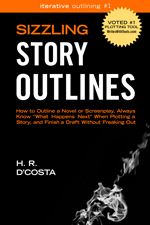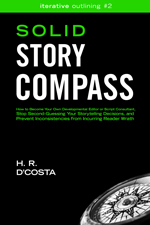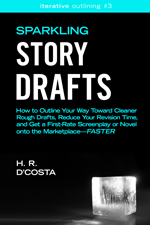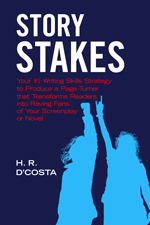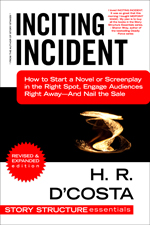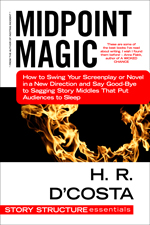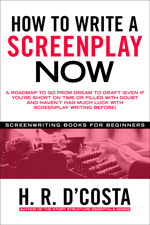Here are 5 screenplay writing tips from The King’s Speech, a magnificent drama as well as a magnet for Academy Awards, including Best Picture, Best Director, Best Actor, and Best Original Screenplay.
In case you’re not fond of indie films or period dramas, let me give you a brief summary of the plot. (If you’ve seen the movie, skip this synopsis and dive right into the screenplay writing tips.)
Synopsis
King George VI, known as “Bertie” and played by Colin Firth, has suffered with a stutter for most of his life. Embarrassing, but not too much of a big deal since he won’t be in the public eye as much as his older brother, Edward. But when Edward abdicates, Bertie’s stutter is a much bigger issue, especially since he has to inspire the public with a radio address right before WWII.
His wife, the future Queen Mother, (played by Helena Bonham Carter), goads him into unorthodox speech therapy with Lionel Logue (Geoffrey Rush’s character). The two have a contentious, but ultimately rewarding, friendship.
And now for the screenplay writing tips:
Screenplay Writing Tip #1: You don’t need a degree to master screenplay writing
After a frosty start, Bertie and Logue have bonded. Bertie even wants to have Logue sit in the family box during his coronation ceremony at Westminster Abbey. In British power politics, this is a big deal.
Jealous over the invite, the Archbishop does some digging and discovers that Logue has no medical degree. Bertie, feeling duped and now embarrassed by his misplaced trust, yells at Logue.
The therapist says he told no lie. Bertie assumed he was a medical doctor, but he never made such claim. He doesn’t add “M.D.” after his name on his office sign; it merely reads: Lionel Logue, speech therapist.
Despite lacking those oh-so-revered two letters, Logue succeeded in helping Bertie where the MDs failed. His experience working with shell-shocked WWI soldiers helped him develop and refine effective techniques no M.D. would know.
You too, will develop and refine effective screenwriting techniques, just through the regular process of writing–squaring off with the blank page, and walking away victorious. This website is a great starting point with screenwriting tips and examples from current movie hits and perennial classics.
The truth is, you don’t need to invest thousands of dollars into an MFA or even a BA to become a successful screenwriter. Let your own experience be your education.
Screenplay Writing Tip #2: Even if your screenwriting dream seems impossible, persevere
The King’s Speech’s journey from page to film was not a smooth one. The screenwriter, David Seidler, had suffered a stuttering problem as a child. Because of this emotional connection, he investigated how Bertie overcame his stutter. He finally made contact with Logue’s son, who promised to share his father’s diaries with Seidler–if the Queen Mother would allow it. She asked Logue Jr not to do so during her lifetime.
She lived 101 years.
Seidler would resume working on The King’s Speech more than fifteen years after he began his original investigations…and his perseverance paid off. At 74 years, he won an Oscar for Best Original Screenplay. Remember this when you feel like abandoning your own screenplay.
Screenplay Writing Tip #3: Write for yourself, not for the market
I don’t think there’s ever a time Hollywood clamors for more period pieces, not even after the past success of Sense & Sensibility and the current success of The King’s Speech. But Seidler didn’t write for the market. He wrote for himself. He wrote this screenplay because it resonated with him emotionally.
Find stories which fascinate you and focus your energy and passion on them instead of trying to figure out the market. After you’ve written a screenplay based on your interests, find a production company that makes movies in the same vein as yours. It takes courage, but if you call them and pitch with passion, you might just very well generate interest in your script and/or your writing.
Screenplay Writing Tip #4: Don’t be jealous of other screenwriters
Bertie was raised by a malicious nanny who would starve him. His parents didn’t realize he was malnourished until three years later. Even though Bertie was a prince, let’s face it, he had a sucky life. Despite his family’s wealth, in some respects, his childhood was worse than some of the poorest in Britain.
You wouldn’t know that though, if you saw him with his crown and epaulets and retinue of servants. You’d just see the royal bling.
The same applies to you. You may read about screenwriters who’ve made six-figure–even seven-figure–deals. But the journey that screenwriter took to get to his wonderful windfall might be filled with as much sorrow as Bertie’s childhood. Reflect on that, before you let the green monster get out of control.
Screenplay Writing Tip #5: Screenwriting has enough obstacles; don’t let an inner critic add to them
To prove a point, Logue makes Bertie put on headphones and listen to Mozart. At the same time, he has Bertie read from Shakespeare’s Hamlet and makes a gramophone record of the king’s recital. When Bertie finally listens to the record, he is shocked. He isn’t stuttering. How is that possible?
The Mozart music was really loud. Bertie couldn’t hear the sound of his own voice–and therefore he couldn’t critique it.
Your own inner critic will try to tear you down the way Bertie’s did. You’ll stutter too–but on the page. Instead of a steady stream of words, your writing will come out in short bursts and spurts…until you feel so discouraged, you don’t write at all.
Don’t let that happen.
Find a way to silence your critic. At first, listening to inspiring music while you write might be helpful. But I encourage you to investigate methods that uproot the problem altogether so that you’re able to pound out your screenplay pages even when your iPod’s battery is dead.
What do you think? Are there any other screenplay writing tips you’ve discovered in The King’s Speech?
Microphone by Ernest Duffoo
